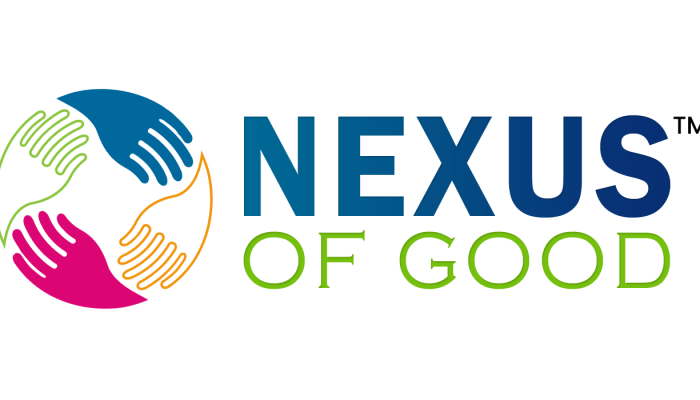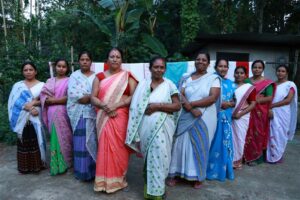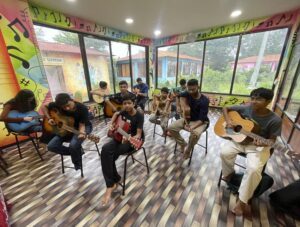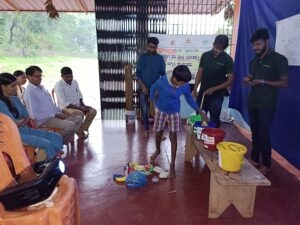In the thriving city of Mira Bhayandar, a transformative revolution in education is set to take off under the leadership of IAS officer Sanjay Katkar. As the Commissioner and Administrator of the Mira Bhayandar Municipal Corporation (MBMC), Katkar has developed the Centre of Excellence in Education (CoE), a groundbreaking initiative designed to foster collaboration between the government and NGOs. With detailed plans in place, the CoE is ready to reshape the educational landscape to address the diverse and complex needs of students.
The Need for a Holistic Approach
At the heart of the CoE’s philosophy lies an understanding of the multifaceted needs of students—ranging from foundational literacy and numeracy to social-emotional learning and career readiness. Katkar emphasises the importance of unified efforts, stating, “Given the wide spectrum of students’ needs and the specialized expertise of various NGOs, true progress can only be achieved through their seamless collaboration. The CoE serves as the critical mechanism to facilitate and coordinate this partnership.” This holistic approach will bring together stakeholders to ensure meaningful and impactful solutions.
Bridging the Gap Between Government and NGOs
Historically, partnerships between the government and NGOs have been limited to procedural approvals, with minimal engagement in implementation and monitoring. The CoE has been conceptualised as a vital bridge to address this gap. Acting as a strategic and operational hub, the CoE will align NGO efforts with governmental objectives, ensuring synergy and maximising impact. “The CoE serves as a translator between NGO initiatives and governmental strategies, ensuring programs complement and enhance educational policies,” Katkar explains. All participating NGOs have responded positively to this vision, enthusiastically supporting the CoE and working closely with MBMC to make it a reality. This collective alignment ensures that the CoE has strong on-ground support from all partners.
The Power of Understanding: Six Months That Changed Everything
Before drafting solutions, IAS Sanjay Katkar took an unconventional path in bureaucracy – he spent six months understanding the problem. “In governance, we often rush to solutions,” Katkar explains. “But transformative change requires deep understanding first.”
Through intensive brainstorming sessions with consultants, NGOs, teachers, principals, and education experts, critical insights emerged. The discovery that 70% of students came from non-Marathi-speaking families led to the innovative parent-assistant program. Understanding teachers’ administrative burden sparked the decision to provide dedicated non-teaching staff.
“Each stakeholder held a piece of the puzzle,” says Mahesh Rasal, Lead Consultant. “Teachers showed us classroom realities, NGOs shared intervention insights, and parents revealed community challenges. This comprehensive understanding became the foundation of the CoE’s integrated approach.”
This patient, methodical approach yielded unexpected benefits. NGOs, impressed by the thorough groundwork, became more invested. Teachers, feeling truly heard, transformed from reluctant participants into enthusiastic supporters.
“The quality of our solutions,” Katkar reflects, “depends entirely on the depth of our understanding. Those six months of listening were our most valuable investment.”
- Philosophy of the CoE
The Centre of Excellence is based on key guiding principles: - Community-Aligned Education
The CoE is inspired by Mahatma Gandhi’s “Nai Talim,” which emphasises integrating education with the learner’s environment and practical life skills. The Employability@18 initiative is a cornerstone of this philosophy, preparing students for the workforce by the age of 18 while also supporting those pursuing higher education. By aligning education with community needs, this approach increases parental engagement and ensures that education remains relevant. Partnerships with organizations like Tata Strive and Kotak Education Foundation will provide vocational training tailored to local demands. To motivate students, provisional offer letters will be issued during training to keep them engaged and focused on outcomes.
- No Additional Burden on Teachers
The CoE’s approach ensures that new programs do not add to teachers’ workload. Instead, it empowers educators to use innovative pedagogical methods that integrate employability and life skills into existing activities. For example, assigning group homework fosters collaboration, while encouraging classroom presentations helps build communication skills. These approaches enable the development of soft skills without requiring additional teaching time or content.
- Empowering Teachers Instead of Replacing Them
The CoE will empower teachers rather than replace them with external trainers, ensuring sustainability. Comprehensive train-the-trainer programs will equip educators with tools to promote holistic development and prepare students to navigate real-world challenges.
- Alignment with NEP and NCF
All CoE initiatives have been meticulously aligned with the National Education Policy (NEP) and the National Curriculum Framework (NCF) to ensure their relevance, sustainability, and compliance with national standards.
- Strategic Interventions
Addressing systemic challenges requires bold and strategic solutions. Katkar and his team are making these critical decisions, understanding that resolving these foundational issues is essential to achieving the transformative change they envision.
- Reducing Teacher Workload: Deployed non-teaching staff to alleviate administrative responsibilities, allowing teachers to focus on academics.
- Enhancing Student Engagement: Provided emotional and social support to improve learning outcomes and overall student well-being.
- Addressing Language Barriers: Involved community members and parents to support teachers, fostering an inclusive and comfortable learning environment for 70% of MBMC students from non-Marathi-speaking families.
- Collaboration for Collective Problem-Solving
The CoE is the focal point of collaboration between MBMC, NGOs, and other educational stakeholders. Key roles include: - MBMC (Program Owner & Coordinator): Oversees program governance, resource allocation, stakeholder management, and overall alignment with strategic goals.
- CoE, Education (Implementation & Facilitation Hub): Acts as the central operational body to co-create, implement, and monitor interventions, ensuring alignment between MBMC and NGO partners.
- NGO Partners: Bring expertise in areas like foundational literacy, remedial education, vocational training, career guidance, social-emotional learning, and technology-driven analytics.
- Muktangan (FLN Expert): Leads foundational literacy and numeracy for grades 1-4 through teacher training, learning materials, and parent engagement.
- Vipla Foundation (Remedial Education): Provides remedial education programs to address learning gaps, track student progress, and counsel parents.
- Lend A Hand India (Applied & Vocational Learning): Delivers hands-on vocational training and connects students with industry for practical skill development.
- Antarang Foundation (Career Guidance): Facilitates career awareness, planning, and mentorship to help students make informed career choices.
- Apni Shala Foundation (SEL Expert): Implements social-emotional learning programs to foster life skills, resilience, and mental well-being.
- Sterlite EdIndia Foundation (Technology Partner): Develops and manages a centralized dashboard for real-time program tracking and analytics.
Sustainability and Replicability
To ensure longevity, Katkar and his team are exploring institutionalization strategies to insulate the CoE from political and bureaucratic changes. Designed as a replicable model, the CoE can serve as a blueprint for other Urban Local Bodies (ULBs) and Zilla Parishads across India. “The CoE is not just about improving education in Mira Bhayandar; it’s about creating a model of excellence that can inspire transformation nationwide,” Katkar shares. Katkar is also considering establishing similar Centers of Excellence in other municipal departments to enhance overall service delivery and efficiency, marking a new chapter in municipal governance.
Sanjay Katkar’s draws inspiration from his personal life
Sanjay Katkar’s vision for educational reform stems from his deeply personal experiences. Hailing from the small village of Kanaka in the Kalamnuri block of Hingoli district in Marathwada, he grew up witnessing the challenges of rural life. With his father as a farmer and having lost his mother at an early age, Katkar and his brothers were raised single-handedly by their father. These circumstances could have limited his opportunities, but education became his path to transformation.
“Education was my bridge from a hopeless situation to a thriving life. It gave me the tools to dream beyond my circumstances and create a better future,” Katkar shares.
This personal journey drives his commitment to ensuring that education becomes a similar bridge for students in Mira Bhayandar Municipal Corporation Schools. He firmly believes that every child deserves the opportunity to transcend their limitations and create a fulfilling life through quality education. His own story serves as a testament to the power of education, making it the cornerstone of his reforms.
As the Centre of Excellence transitions from concept to implementation, IAS Sanjay Katkar’s vision is poised to bring transformative change to Mira Bhayandar’s education system. By fostering collaborative governance, empowering educators, and aligning with national priorities, the CoE is set to redefine education as an inclusive, practical, and impactful endeavor. As this model gains momentum, it promises to reshape India’s educational landscape, ensuring that every child has access to quality education and the tools they need for success in life and work.
The CoE stands as a shining example of how visionary leadership and collective action can create lasting change, not just in Mira Bhayandar, but across the nation.





